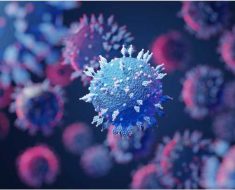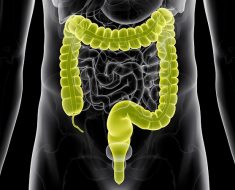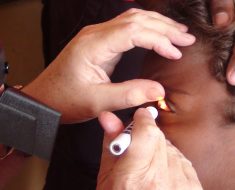What's the difference between a heart attack and cardiac arrest?
We use your sign-up to provide content in ways you’ve consented to and to improve our understanding of you. This may include adverts from us and 3rd parties based on our understanding. You can unsubscribe at any time. More info
Heart attacks, characterised by cold sweats and sharp pain in the chest, are widely understood as the result of poor lifestyle choices that progressively damage vascular health. The most infamous beverage associated with this damage is alcohol. But in recent years, other drinks have raised concerns over their effect on the heart. One popular beverage has been shown to increase the risk of heart attack in young and healthy people.
Heart attacks strike when blood flow to the heart becomes obstructed, and a number of factors can cause this.
One body of research suggested that consuming too many energy drinks could trigger a sudden cardiac arrest in healthy people.
The main dangers of the beverage lay in its high concentrations of caffeine.
It contains masked caffeine in the form of agents like guarana, which is derived from a plant that is identical to the caffeine found in coffee.
READ MORE: Heart disease: ‘Evidence is clear’ – the popular drink to avoid to lower condition risk

Although caffeine consumption is generally considered safe, adverse effects have been reported in connection to larger doses.
Guarana, however, contains twice the amount of caffeine found in coffee beans. When mixed with other popular substances, such as ginseng and taurine, guarana can generate uncertain interactions, warned researchers.
The authors of the 2017 paper, published in Anatolian Journal of Cardiology, noted a prevalence of “unexplained cardiac arrests in young people after consuming energy drinks”.
They noted the events were particularly rife among those mixing energy drinks with alcoholic beverages.
They explained: “It seems clear that energy drinks, some beverages, and some supplements that include stimulants might lead to critical and rarely irreversible cardiovascular events in the young population.”
They speculated that the most credible explanation was that energy drinks “lead to catastrophic events via lethal arrhythmias”.
Arrhythmias is a condition caused by faulty signalling that coordinates the heartbeats.
This can result in the heart beating too fast, too slow, or regularly. In severe cases, the condition can cause rapid, chaotic electrical signals to travel to the heart’s lower heart chambers.

According to the Mayo Clinic, this may lead to serious problems which can cause death, if the heart rhythm isn’t restored within minutes.
How to avoid heart attack
Countermeasures against heart attack usually include treatment of both high blood pressure and high cholesterol.
The conditions, which are major risk factors for having a heart attack, can be averted through a combination of exercise and healthy diet.

WebMD recommends choosing “plenty of fruits, vegetables, whole grains, poultry, fish and other lean proteins, nuts, seeds and vegetable oils”.
It also advises “keeping saturated fat to less than six percent of your daily calories”.
Alcohol and tobacco also have important effects on cardiovascular risk factors, but smoking is certainly worse than drinking.
Inhaling cigarette smoke injures cells, which causes significant damage to the artery, thereby increasing the risk of having a heart attack.
Source: Read Full Article





